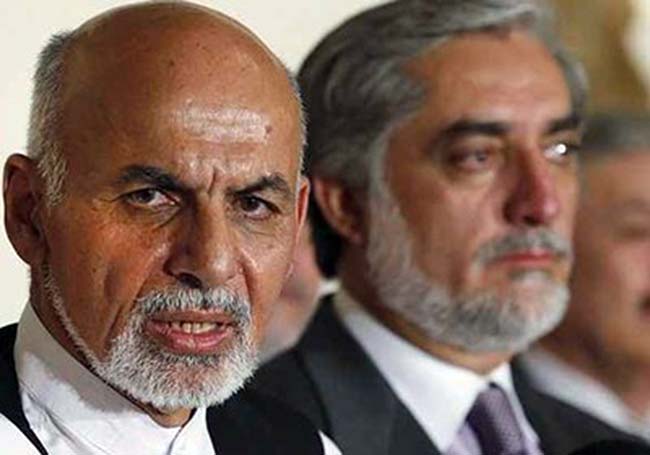Afghanistan constitutionally supports the civil rights of the public based on democratic view and modern law. Men’s dignity, human rights and freedom are deemed natural and beyond transgression. Violence and discrimina-tion on the grounds of one’s race, sex, beliefs, etc. are against law and the “United Nations Charter” and the “Uni-versal Declaration of Human Rights” are recognized in the constitution and will be strengthened by the govern-ment unless being in conflict with Islamic tenets or the society’s ethical code and social values.
Afghan government is committed to protect citizens’ rights and liberty, form a civil community void of violence and atrocity, uphold democracy and national unity and eliminate any kinds of discrimination and distinction, which may befall the country. Violating people’s fundamental rights is a highly punishable act and any warring parties who violate the nation’s rights or revolt against the government will be convicted of a serious crime.
Similarly, persecuting or curtailing others’ freedom is not in the field of the individuals’ authority; however, re-striction is imposed on their rights and liberty on the basis of law by the state. The constitution states, “No one shall be punished without the decision of an authoritative court taken in accordance with the provisions of the law….”
Regarding prisoners’ rights, torture and persecution, confession obtained by means of compulsion, punishment contrary to human dignity and humiliation are forbidden with serious tone. Prisoners are entitled not to confess their crimes and to have defense attorney – their secret conversations and communications are considered to be immune to any kind of violation from the state. In other words, torturing prisoners, making them confess their acts or letting their legal period of sentence exceed are all against the law. Therefore, since police, court and prosecuting attorney are supposed to have an eye on enforcing law, they will have to act upon the same law strictly.
The judicial system plays a highly crucial role in our society vis-à-vis resolving criminal and civil cases and must remain impartial. It is believed that when the judicial machinery, in a society, tends towards corruption, enforcing law will be next to impossible. As a society is in need of constructive law, which is supposed to be based on social values, moral standards and cultural norms, it also should have independent and transparent judicial machinery. For instance, every citizen is equal in the eye of law, in our country, regardless of his/her racial, religious or sexual backgrounds, but is s/he treated equally in the judicial system?
Ill-fatedly, all three institutions i.e. legislative, executive and judicial powers do not move in parallel lines to one another. Our law is perfect and considers the citizens’ fundamental rights – the rights to life, liberty and property – in accordance with international law and society’s values; however, it is still in the top list of corrupt countries. Law is enforced only on the poor, even their legal periods of sentence exceed, they are tortured and being imprisoned without knowing the reasons or having committed a crime, humiliated and discriminated in one way or another. But their voice falls on deaf ears.
Human’s dignity, natural rights and equality, for being human, are also emphasized in the Universal Declaration of Human Rights (UDHR) – which is recognized in Afghanistan’s constitution. Based on this, people are born with a set of natural and inviolable rights and have to be held in respect. It further underlines men’s equality before the law, the immunity of one’s privacy, respecting their honor and reputation, etc. Despite all the mentioned facts, people’s rights are widely violated which reflects lack of law enforcement. As a re-sult, it is said, “The accused shall be innocent until proven guilty by the order of an authoritative court.” However, s/he is treated as criminal before being proved by the court. After all, women, who frequently fall the victim of domestic and social violence, hardly dare filing petition against the violators of their rights. They are misbehaved by all, including police and it is deemed inappropriate mainly in traditional customs. A woman was called “prosti-tute” for complaining against a man in a court and this is a clear example of being treated negatively.
Moreover, women are treated as pariah and stoned to death in tribal belts and in Taliban-dominated areas. Mem-bers of the Taliban radicals flagellated women in desert court – which is a flagrant violation of human rights and lawbreaking. In suicide bombings, the lifeless bodies of women, as drops of boiling blood trickle down their wounds, fill one with a strong sense of sorrow and disgust and they bear the brunt of lawlessness.
It is believed that violating man’s rights and dignity will continue unabated unless we listen to the call of our con-science and uphold law and order and code of ethics in individual and social life. In the same way, men’s natural dignity should be considered seriously regardless of people’s ethnic backgrounds. Additionally, the state has to put its peremptory law into practice transparently so as to prevent from flagrant violations. Since “disregard and con-tempt for human rights have resulted in barbarous acts” people have to hold one another in high esteem and “act in spirit of brotherhood” – this will be the only way to remedy the chronic problems of human societies.
Home » Opinion » Imbalanced Powers
Imbalanced Powers
| Hujjatullah Zia

